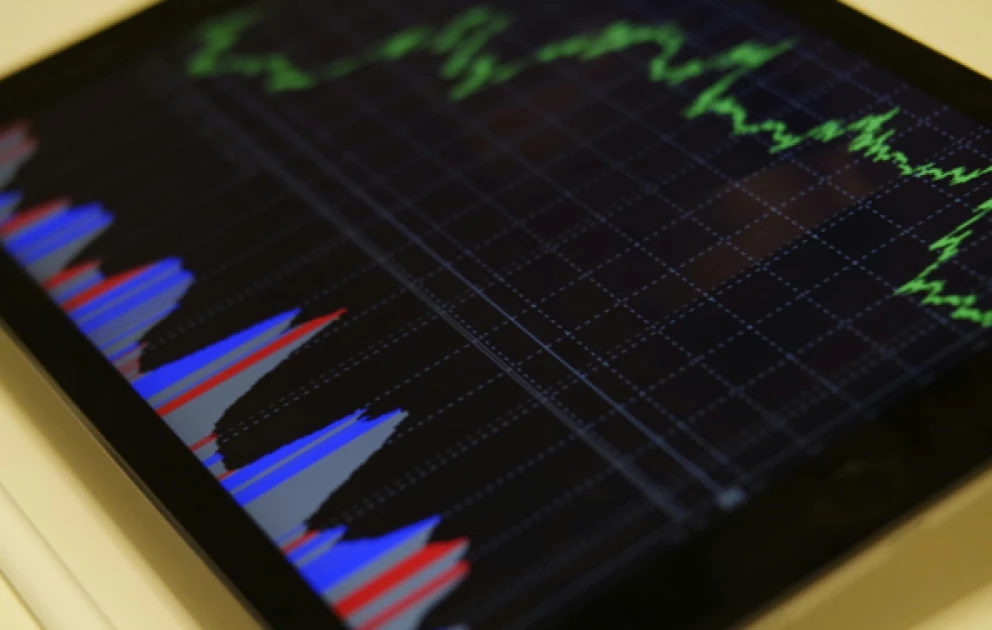How mobile technology is changing forex trading in Africa


Audio By Carbonatix
Rapid innovations in mobile teleconnectivity and fintech are revolutionising the foreign exchange market in Africa. In villages and urban cities, access to currency trading is now within reach of millions.
The rise in smartphone penetration and
increased internet speed is revolutionising how currency markets function
throughout the continent. Trading applications, previously only available on
computers, are now conveniently utilised on smartphones, opening up
opportunities for both new and experienced traders to engage in worldwide financial
markets.
Expanding Access
Through Mobile Connectivity
Mobile technology has proven to be a key
catalyst in bridging the gap between conventional financial services and
underprivileged populations. Previously, African currency trade was mainly
restricted to urban hubs where infrastructure could accommodate the demands of
real-time market information. Currently, affordable smartphones and economical
mobile internet packages have opened up access possibilities in areas
previously left out of such engagements.
Their widespread availability of mobile
trading applications allows clients to track exchange rates, make trades and
administer accounts virtually anywhere in the world. Financial education
programs, similarly distributed through these devices, help traders make
informed choices in the volatile industry.
This portability has also made it easier
for traders to respond to events worldwide more rapidly than ever before.
Political shifts, shifts in commodity prices and announcements of central banks
may cause responses instantly and access through mobile ensures participants
respond within seconds rather than hours.
Incorporating
Local Payment Solutions
Smooth assimilation of home mobile payment
systems has transformed the business. In Kenya, the success of mobile money has
simplified and secured financing, rendering withdrawals from trade accounts
swifter than before. All forex brokers in
Kenya offer direct access to mobile wallets, eliminating bank
transfers and the delays, charges or procedural bottlenecks they often carry.
This simplicity has spurred more regular trading action and reduced the barrier
to entry for individuals who cumbersome bank processes would otherwise put off.
In addition, this consolidation has boosted
industry confidence. Transactions moving through ubiquitous payment networks
make traders feel more secure about accessing and moving their money. Mobile
payments are particularly critical where appropriate banking infrastructures
are scarce, facilitating inclusion without a conventional bank account. Access
to depositing and withdrawing funds without travelling long distances to a bank
branch has been revolutionary for rural traders, saving them time and money.
Additionally, the convenience of transacting
in local currencies has removed the stumbling block among new traders. This
eliminates conversion fees for the majority and reduces the inconvenience of
handling multiple exchange rates before initiating a trade. Ultimately, such
convenience may lead to a broader and more diversified universe of market
participants, thereby building a more resilient and competitive market
landscape across the region.
Increasing
Financial Literacy and Awareness
The rise of mobile technology has also
supported the growth of educational resources that demystify complex financial
concepts. Video tutorials, interactive webinars and chat-based advisory
services are accessible through the same devices used for trading. This
accessibility plays a significant role in addressing one of the key challenges
in the market: understanding what is forex
trading in Kenya and how it functions within a global context.
Financial education offered via mobile
applications has reduced barriers to entry. Previously, potential traders
relied on sporadic seminars or written materials. Learning modules are provided
at a personal level of convenience. They may be pursued in one's home language,
further widening the pool of informed players in the foreign exchange market.
Others are even including gamified learning
environments. These provide users with practice in virtual marketplaces,
minimising the potential cost of losing money while helping them build
confidence before going live.
Role of Regulation
and Compliance
As the mobile-led forex business grows,
African regulatory environments adapt to keep pace with the industry’s
expansion. Financial regulators
are more concerned with checking mobile trading sites for compliance,
safeguarding client information and avoiding fraud.
In South Africa, Nigeria and Kenya, among
other countries, regulators have set guidelines to protect participants and
stimulate innovation. These guidelines are designed to ensure market integrity
while helping harness the benefits of mobile access. Clarity in regulations has
been another factor in luring qualified service providers to transact business
in African markets, further bolstering trust in the ecosystem.
Given the global nature of currency trade,
cross-border collaboration among regulators is also becoming a focus. Common
frameworks and harmonised rules may help safeguard traders while facilitating a
more integrated African forex market.
Future Prospects
and Challenges
Though telecommunication technology has
hugely expanded access to forex trade throughout Africa, setbacks persist.
Network coverage weaknesses, primarily in isolated areas, may disrupt seamless
trade experiences. Moreover, the potential for misinformation and unregulated
brokers persists and poses a threat to novice traders.
Nevertheless, the future perspective is
promising. As 5G networks spread and smartphone costs keep going down, the next
level of expansion will probably feature more sophisticated trading
instruments, real-time data analysis and AI-powered market information on
handheld devices.
More cohesion among technology providers,
banks and regulators will be instrumental in defining this next phase. Should
infrastructure expansion match the rate of user expansion, mobile technology
may solidify Africa as one of the most vibrant and rapidly adopting regions in
the global financial arena.


Leave a Comment